Your donation will support the student journalists of Sacramento State University. Your contribution will allow us to purchase equipment and cover our annual website hosting costs.
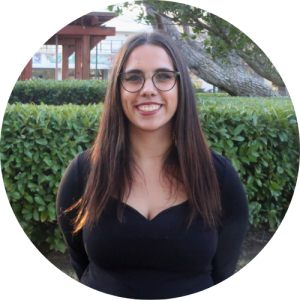
 |  |
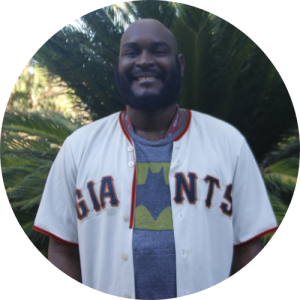
 |  |
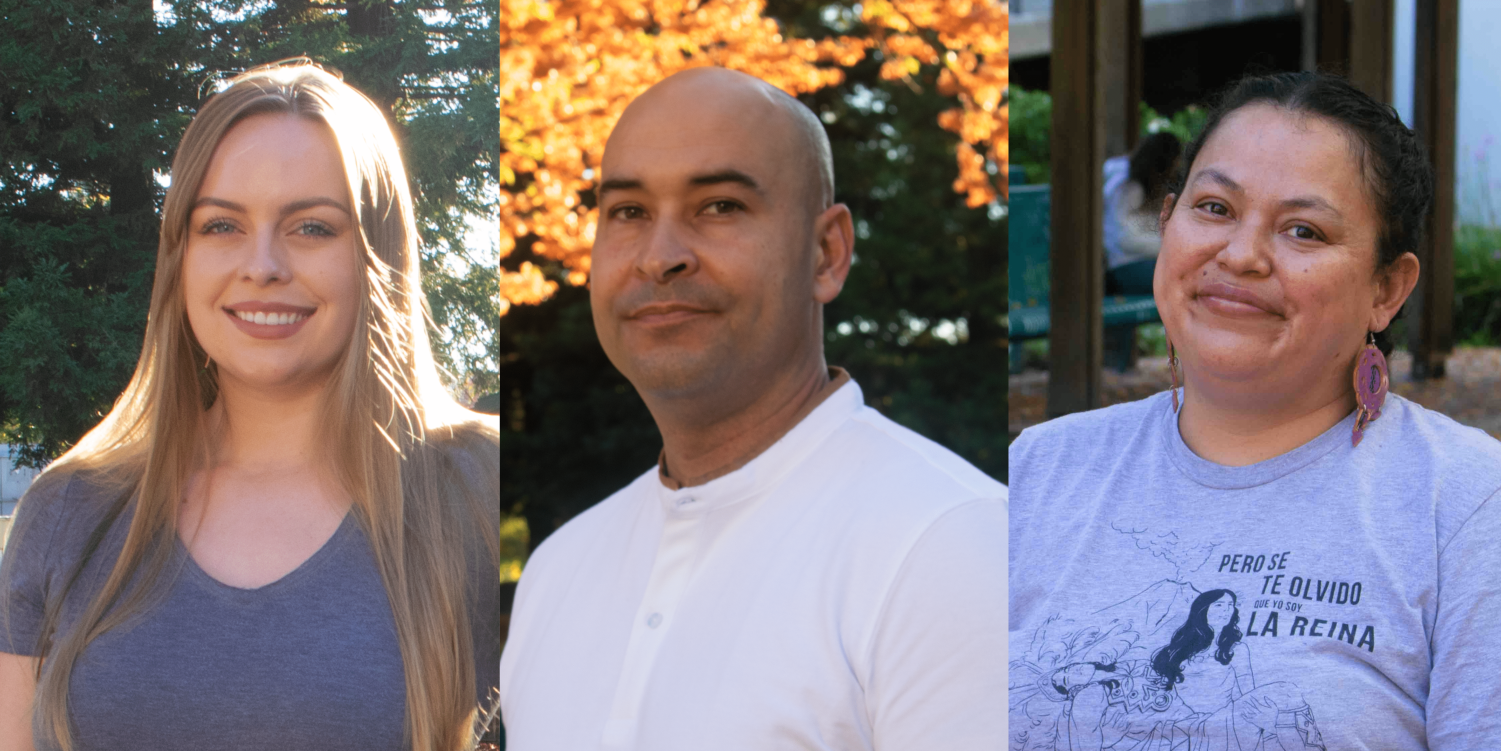

November 10, 2021
For Native American students at Sacramento State, feeling like you belong is a challenge.
With Native students making up 0.23% of the university’s overall population, students cite a lack of representation and feeling mentally drained attending a university where no one is like them.
The State Hornet spoke with three Indigenous students: Amanda Croteau, Josiah Nelson and María Elena Pulido-Sepulveda about their academic journeys and what it is like being Indigenous at Sac State.
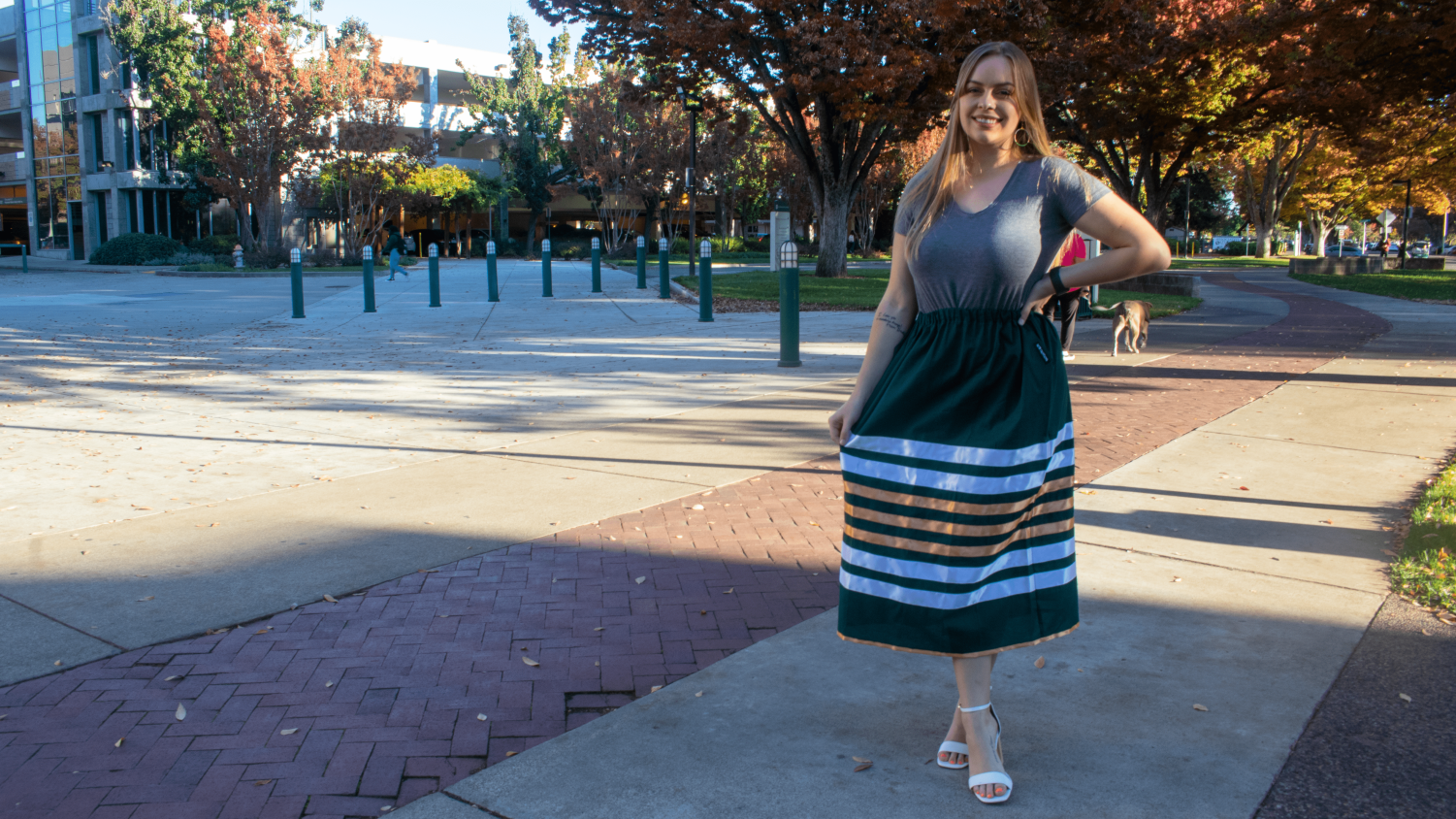
Amanda Croteau stands on Sacramento State’s campus wearing an emerald green ribbon skirt. As a citizen of Cherokee Nation and president of Sac State’s Ensuring Native Indian Traditions club, she says she hopes to help other Native students feel like they belong.
When Amanda Croteau, a 22-year-old earth science major, arrived at Sac State, she said she felt like she could not be herself.
Croteau said the lack of representation of Native people at Sac State makes it mentally draining to be an Indigenous student.
“I’ve gotten weird stares wearing things on campus like my earrings or if I wear my ribbon skirt,” Croteau said. “I think this is just the lack of representation, the lack of just seeing other people who look like you.”
In fact, through her entire K-12 experience, she said she has never known other Indigenous students. Through connecting with campus resources like Ensuring Native Indian Traditions Club and the Native Scholars Program, Croteau said she became comfortable sharing her Native traditions. For her, these spaces made her realize it was okay to be Indigenous.
While she’s an enrolled citizen in Cherokee Nation, Croteau was born and raised in Sacramento away from her reservation. As a Native person growing up “urban,” she describes the complicated relationship with her Indigenous identity. Having blond hair, blue eyes and fair skin, Croteau said she was interrogated about her blood quantum, the amount of Native “blood” she has, since elementary school.
“My entire life I have been made fun of,” she said. “I’ve always struggled with that just because I just don’t have the stereotypical Indigenous look. But really, when you’re around and you see just how different everyone looks, the stereotypical Native look does not uphold.”
Croteau says she grew up disconnected, struggling to keep up with her Cherokee traditions being away from her own reservation.
Through her role as president of ENIT, Croteau wants to help other Native students like her. For her, working with other Native students is “making up for lost time” where she struggled with her own identity.
“I am part of the Native community, even though it is pretty small,” she said. “It has allowed me to learn so much about not even just my culture but other cultures as well.”
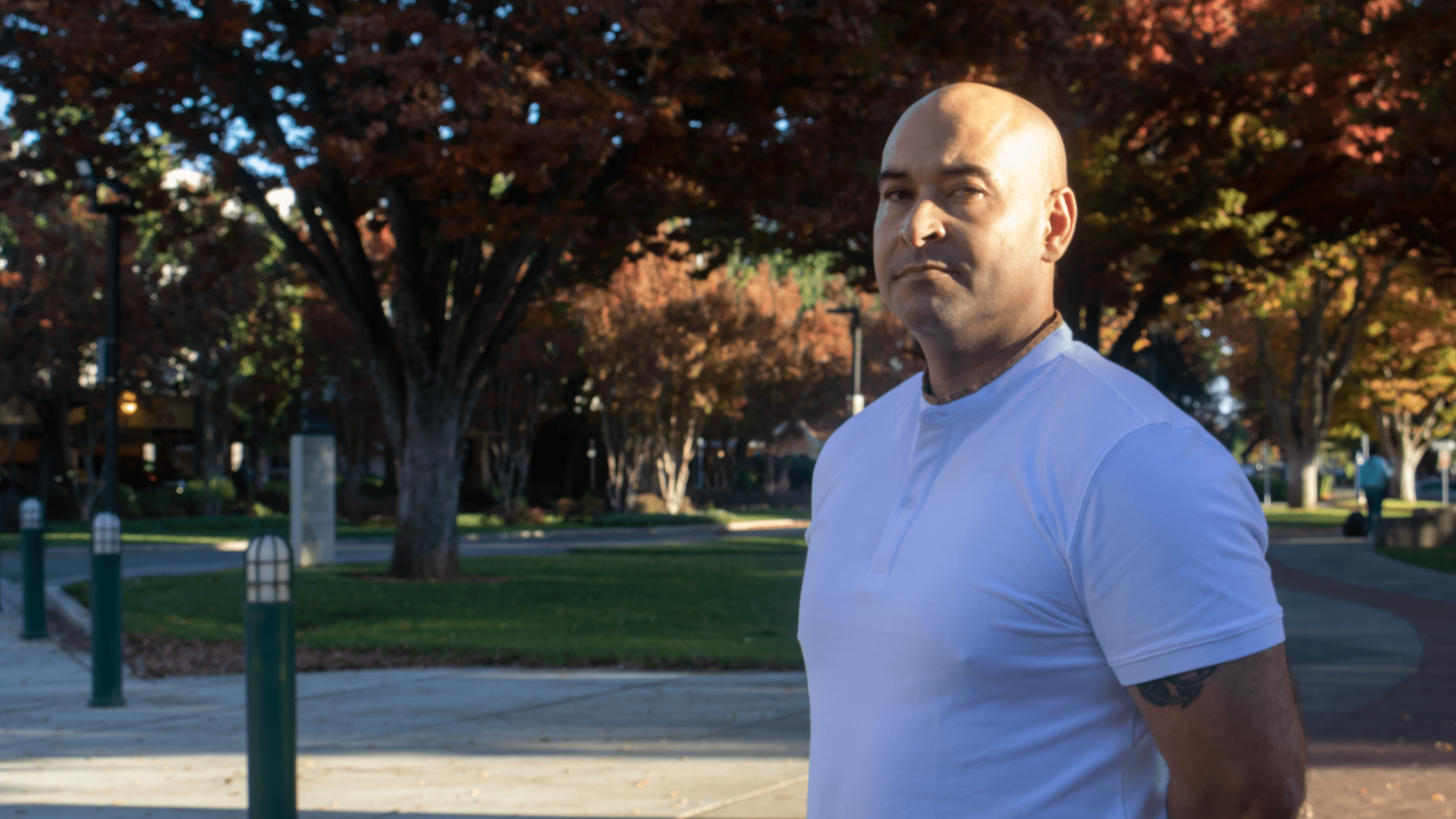
Josiah Nelson poses underneath the autumn leaves at Sacramento State. Having grown up on the Hoopa Valley reservation in Humboldt County, Nelson says he struggles to find a group on campus where he belongs.
Josiah Nelson says he feels that as a Native student, it is difficult to find large groups of students like him together.
“We’re all kind of trying to seek kinship with our fellow people,” Nelson said. “Everybody sees the college flyers and sees people walking together and laughing walking in groups. I see that walking through campus. White kids rock with the white kids…but as a Native student, you don’t really have that.”
Nelson is a 41-year-old economics major and transferred to Sac State last year from Sacramento City College. Having grown up partially on the Hoopa Valley reservation in Humboldt County, Nelson said he experienced bullying and racism on and off his reservation.
“There’s a lot of people that are really trying to be the best [on reservations], but there’s also an equal opposing force that just doesn’t want to see anybody get ahead,” he said.
Growing up in his tribal community, he said he also grew up with “a lot of good things” like his culture. Nelson also served in the Marine Corps from 2001 to 2006 and has been in the Army National Guard ever since.
Being one of the 73 Native students on campus, Nelson explained that he does not feel like he is a part of a group on campus. Even among Native students, Nelson says he feels alone.
Nelson’s education journey started over 20 years ago when he attended the University of Arizona studying pre-med. He said he took on too much school work too early thinking he could handle it then realized he could not. He later dropped out because he said he did not have the grades to stay in and enlisted in the military. Near the end of his active duty, he decided to go back to school because it was a lifetime goal for him to get his degree.
“When I came back to college, I wanted to do engineering,” Nelson said. “I just realized probably the chemistry [course] was over my head…I realized that I was into social issues and cared about social issues and economics was a good blend of my mathematics skills.”
With Nelson being interested in social issues and politics, he said, he plans to either work for the state or become a teacher with economics.
Nelson said he chose Sac State after active duty because the university is as good as anything else as far as getting an education. He said he transferred to Sac State in the middle of the pandemic and is doing well rising up to the challenge.
Outside the classroom one of the challenges that Nelson said he faces is overcoming alcoholism having grown up on a reservation as a child in poverty and joining the military where there was a “drinking culture,” Nelson said it is difficult to maintain his sobriety.
“You would’ve thought that I [could] outgrow it,” Nelson said. “I would have outgrown it. But, I really haven’t.”
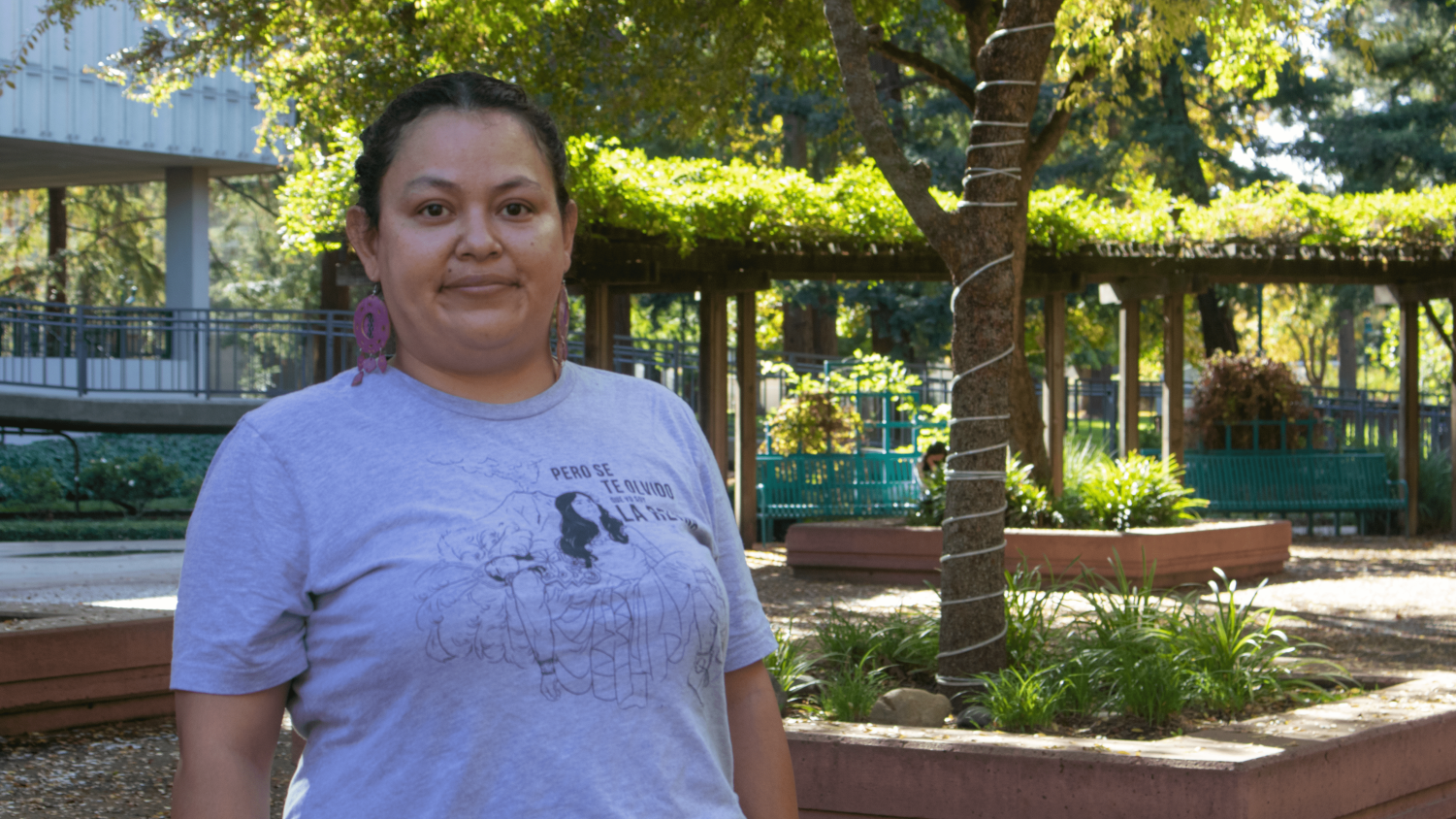
María Elena Pulido-Sepulveda stands near the library on Sacramento State’s campus. Pulido-Sepulveda is descended from the Caxacan and Otomí and studies sociology at Sacramento State.
Growing up, Pulido-Sepulveda always stuck out as the only girl with a braid in her hair. While she was raised Chicanx and grew up speaking Spanish, Pulido-Sepulveda said she always felt out of place.
She said through taking Native Studies classes, she was able to better understand which identity reflect her experiences.
Pulido-Sepulveda is now 39 years old and a sociology major at Sac State. Originally starting her higher education journey at American River College, she said she decided to take a college class when her youngest child started kindergarten, admitting she was “kind of jealous.”
It was not until taking the Native American Experience class at Sac State, alongside researching her own genealogy, that Pulido-Sepulveda embraced being Indigenous.
“It took me getting my education to be able to feel comfortable identifying as Indigenous,” she said.
Being with other Native students, especially with ENIT, has helped Pulido-Sepulveda feel a sense of belonging in a place where Native students are the smallest ethnic group on campus, she said.
“The ENIT club is where I feel I belong because it’s the one community space that I know of [where] ‘existence is resistance’ and ‘respect our existence or expect our resistance’ isn’t a threat, it’s a norm,” she said. “It’s not about ego, it’s about resilience even in the places you are least wanted.”
For Pulido-Sepulveda, she said her relationship with her children has motivated her to continue to pursue her education. After her son died in a car accident when she started at Sac State, Pulido-Sepulveda said she had two choices: to be upset and depressed or be a good mom and look after her three other children. She chose the latter, continuing to work towards her degree.
“[I’m] just setting these examples for them so they can see I didn’t give up and I didn’t stop at just a high school diploma,” she said.
With aspirations to go into grad school, Pulido-Sepulveda said she currently advocates for Native students and is vocal about providing more support for them on campus. For example, in the state of California, Native students have the lowest college-going rate and highest high school dropout rate of any ethnic group in California.
“When we talk about Native students not getting into higher ed[ucation] or even out of high school I advocate for students, and so I know that our Native students specifically need more support, and they’re not getting them,” she said. “So even if they have the federal recognition or state recognition, [that] support isn’t on the campuses.”
Your donation will support the student journalists of Sacramento State University. Your contribution will allow us to purchase equipment and cover our annual website hosting costs.

 |  |

 |  |